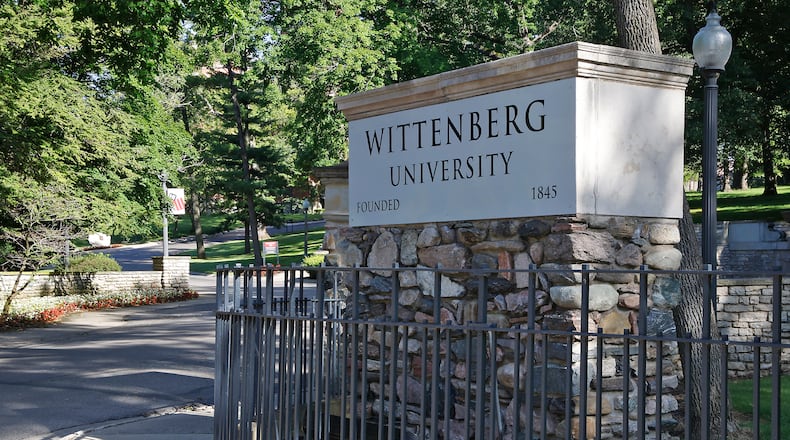“There is a large shortage of high school STEM teachers across the nation, including in Springfield. More efforts are needed to demonstrate the benefits of a teaching career, incentivize students to pursue STEM education, and develop supports that ensure the long-term success of new teachers,” Parker said. “The grant is specifically designed to address exactly these challenges and reduce the barriers for future STEM teachers.”
With the grant, Daiga and Parker will set up sustainable structures that will help with the creation of a pipeline of STEM educators. This includes the launch of a Learning Assistant (LA) program, which will help with co-teaching opportunities in introductory, active-learning STEM courses at Wittenberg. The project team will then study the effectiveness of the program by comparing academic outcomes in courses that use LAs with the ones that didn’t use them.
This effort will include partnerships with the Springfield City School District, Global Impact STEM Academy (GISA) and Clark State College.
“We are both really excited to begin the work that will create a pipeline of at least 13 STEM AYA (adolescence to young adult education) teachers for Springfield City Schools and the Global Impact STEM Academy while supporting the good work happening in the Springfield community,” Daiga said. “We are happy to see work that began two years ago come to a fruition, and perhaps even more exciting is the programming impact and scholarship opportunities for future Wittenberg students.”
The ASCENT-STEM program will implement recruitment strategies tailored to four student populations, including recruiting area high school students who may develop an early interest in serving as a STEM teacher, transfer students from Clark State College and elsewhere, first-year Wittenberg students who have not decided on a career or vocation, and Wittenberg STEM majors in semesters 2-4.
Besides recruiting and graduating 13 undergraduates pursuing teacher licensure in biology, chemistry, physics and mathematics over a five-year period, ASCENT-STEM will create support structures for Noyce scholars during their early years as teachers after graduation.
“When surveying studies trying to improve educational experiences, teacher effectiveness is a clear difference-maker in student outcomes,” Daiga said. “Our leadership team is hopeful that these 13 Noyce Scholars will drastically change local AYA STEM classrooms, changing the community for generations to come.”
For more information on the new program, visit: www.wittenberg.edu/academics/education/noyce/noyce-scholarship-program.
About the Author

